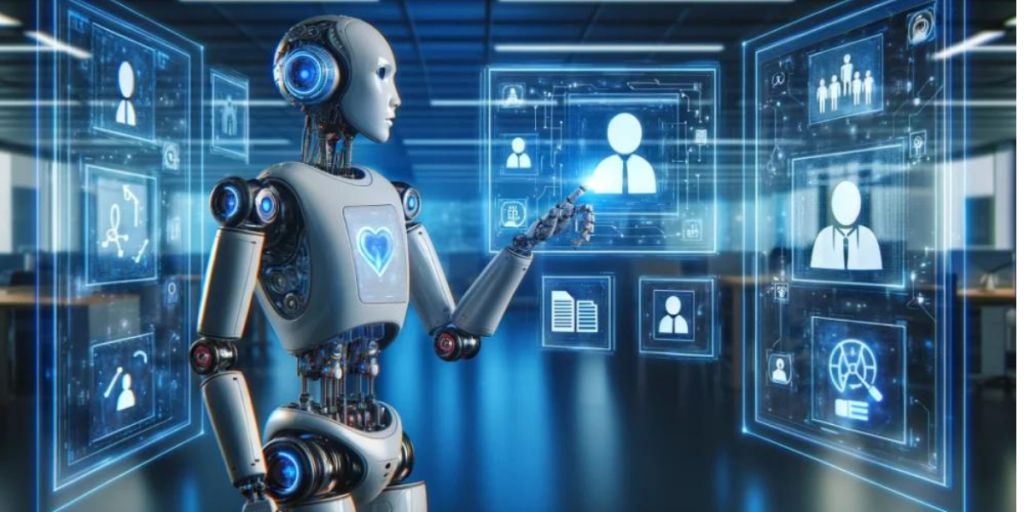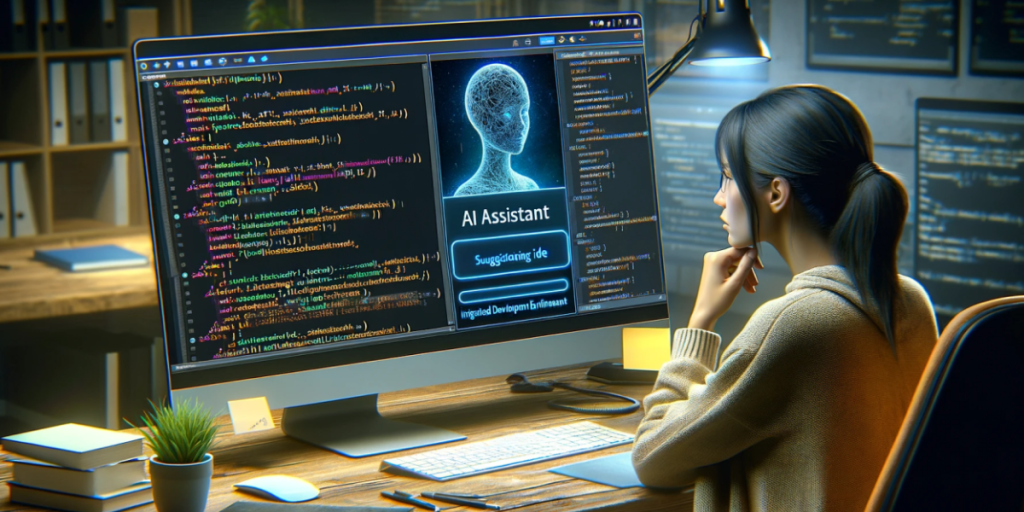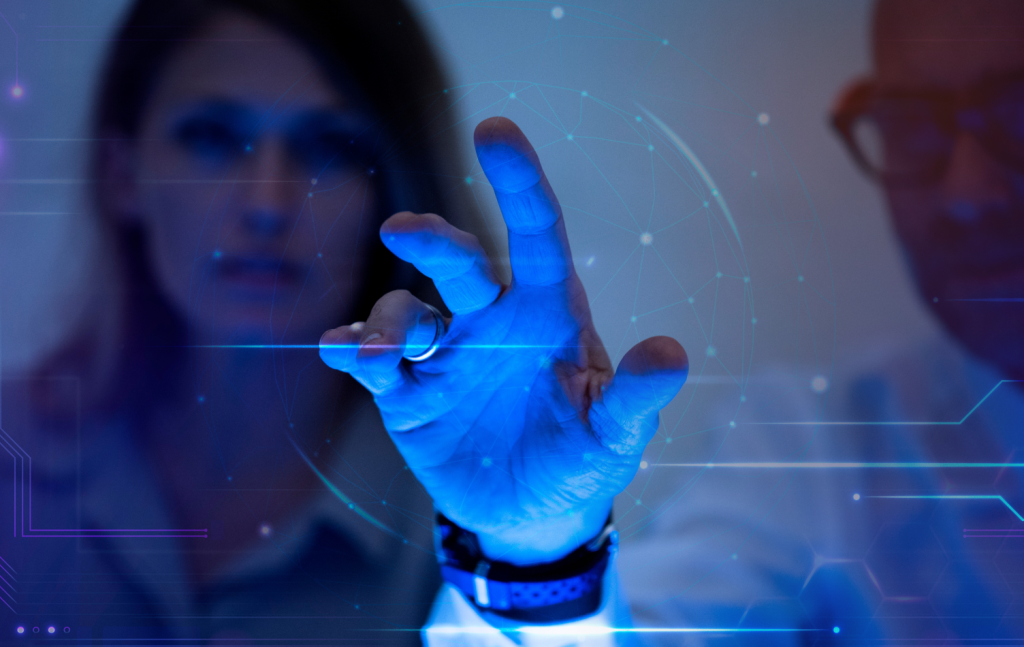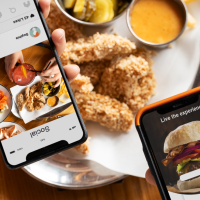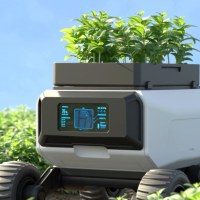The world is increasingly dependent upon artificial intelligence (AI)-powered personal assistants, which are increasingly frequently used at work and in our private lives to help with health, well-being, and enjoyment. AI assistants are digital assistants capable of interpreting and responding to user queries, completing tasks, and finding information quickly and precisely. For example, the digital assistants on our smartphones will inform us whether we require an umbrella for the day. How will the traffic likely be on our regular route to home, or will it offer comfort to those feeling isolated?
Using an NLP algorithm, these machines comprehend and interpret human language, allowing users to communicate using texts or voice commands that mimic human conversations. Furthermore, Integrate AI Voice Assistant continuously learns and evolves based on user interactions, improving efficiency and adapting responses to user preferences.
AI assistants’ development is an important shift in how humans interact with computers. They effortlessly incorporate technology into our daily routines and offer users unprecedented convenience, efficiency, and access. As virtual assistants grow, their potential to streamline processes, improve workflows, and enhance user experience is limitless. It signifies a new future where AI effortlessly enhances and complements everyday routines.
In this post, we’ll explore various AI-powered personal assistants.
So, let’s get started.
What Is An AI Personal Assistant?
An AI personal assistant employs artificial intelligence, natural language processing, and machine learning technologies to recognize user input and take necessary actions accordingly. These tasks include creating reminders and alarms, messaging and phone calls, searching the web, and controlling smart home appliances. AI assistants may be operated by voice, like Siri or Alexa, or text-based, similar to chatbots that provide customer service. They’re designed to comprehend human conversation, act in human interactions, learn from user interactions, and predict future user needs.
The Role Of AI-Powered Personal Assistance
Incorporating AI into personal assistants has drastically changed how people approach daily issues and tasks. The key to the transformation lies in natural language processing (NLP), an essential element of AI that allows virtual assistants to comprehend and translate human conversation. This technology allows AI personal assistants to respond to queries from voice users with astonishing speed, making interaction more comfortable and natural for users.
AI digital assistants go far beyond simple voice recognition. They analyze context, recognize subtleties, and can even predict needs based on prior interactions. The level of personalization and comprehension enhances the quality of the user experience. This makes AI assistants far more than devices; they are trustworthy assistants to manage our digital lives.
From arranging appointments and reminding you to make appointments, answering your queries, and providing internet-based services, AI-powered virtual assistants simplify many tasks. They handle your schedule, organize your email messages, create alarms, and provide the latest weather information or news stories using simple voice commands and texts. This is not just a way to save time but also increases productivity by allowing people to focus on other vital tasks in front of them.
Key Features Of Generative AI Personal Assistants
Generative AI personal assistants use advanced techniques like neural language generation (NLG) and deep learning to produce highly responsive and intelligent virtual assistants. The assistants have several essential characteristics that improve user interaction as well as overall performance:
Natural Language Understanding (NLU)
One of the most important advantages of generative AI personal assistants is their ability to understand and interpret user questions and requests using natural languages. This enables smoother and more natural interaction since the AI personal assistant can accurately discern what the user is trying to communicate and then respond to the user’s needs. NLU provides a better user experience, making interactions through the AI assistant appear more human and natural.
Generative Capabilities
The assistants have advanced generative abilities that allow the creation of natural-looking, human-like reactions. In addition to generating relevant, contextually specific data relevant to the context, the AI can participate in engaging discussions, offering users personalized answers and ideas. This enhances the AI’s capacity to deal with various queries and provide accurate, insightful, and engaging answers.
Context Awareness
Generic AI personal assistants track contextual information across multiple interactions, which is essential for providing relevant and coherent responses during a dialogue. Recognizing context allows the AI to recall earlier conversations, follow the pace of conversation, and draw on previous information. This means that the AI will provide more precise, appropriate, contextually based responses, creating a better and more user-friendly experience.
Learning and Adaptation
The continuous learning process triggered by user interactions is the primary aspect of this type of AI assistant. The AI assistant will enhance its capabilities over time by analyzing and incorporating feedback on every interaction. The learning process allows the AI to learn about users’ preferences, adapt to changing demands, and provide more personalized and reliable service. Learning and the ability to adjust ensures that the system stays relevant and beneficial for users even as their needs alter.
Task Automation
Generative AI assistants are adept at automating various tasks triggered by user input. These devices can effectively perform many tasks, from simply executing commands to carrying out complex, specific actions. Automating tasks streamlines workflows reduces time, and improves efficiency, as users can delegate complicated and repetitive chores to an AI assistant.
Conversational Flow
Facilitating conversation is yet another important aspect of generative AI personal assistants. The AI ensures that conversations seem natural and smooth by analyzing context, maintaining conversation coherence, and not allowing repeated or inconsistent responses. This helps to provide an improved and enjoyable interaction with the user since they can have fluid and meaningful discussions with the AI.
Different Types Of AI Assistants
The most common types of AI assistants are:
AI Chatbots
The core of personal assistant technology is AI chatbots. They’re interfaces based on text and connect with users on websites, social media platforms, and chat apps. Contrary to conventional chatbots, AI chatbots use NLP and ML to recognize the user’s needs and respond with a context-specific approach. They’re created to aid clients, respond to inquiries, and start conversations. This makes them an excellent tool for customer support and engagement. Their constant improvement in capabilities, based on continuous analysis of user interactions, makes it possible for the AI assistants to give more efficient and accurate responses.
Artificial Virtual Assistants
Assistants can perform functions across platforms and devices, mainly via voice-based interactions. They primarily interact with their users using natural language and AI Voice Assistant-based interaction. AI-based virtual assistants, such as Siri from Apple Siri, let users access data quickly, manage intelligent appliances in the home, control calendars, and integrate various applications and services.
Conversational Agents
In addition to the text-based interfaces with AI chatbots, conversational agents are a much more active kind of assistance. They are adept at engaging in human-like conversation, using spoken and written text to communicate with their users. Utilizing sophisticated AI virtual assistant technology, conversing agents can comprehend complicated linguistics patterns, determine the user’s intention, and provide suitable responses. Their level of sophistication is ideal for many applications, from customer support to personal task management, giving a seamless and enjoyable user experience.
Virtual Assistants With Specific Domains
They are specific AI virtual assistants tailored explicitly to particular sectors. They are crafted to deliver optimal performance in areas such as finance, travel and engineering, cybersecurity, and other fields requiring much more.
Advantages Of AI Powered Personal Assistants
Personal assistants with AI power can provide many corporate personal and business advantages.
They Assist Those Afflicted By The Loneliness
It has an enormous impact on health and well-being, with experts saying that it’s like smoking. Although we’re among the most connected due to the internet, loneliness is still a significant concern in our world. This is not just for older people. Research shows that people aged 16 to 29 have a two-fold higher chance of feeling lonely regularly or at all times than those older than 70.
AI personal assistants offer tremendous potential in solving the urgent issue of loneliness affecting the social and healthcare field. In support and companion technology, assistants can be a constant source of engagement and emotional support for individuals. With the help of natural language processing and emotional responses, these assistants can engage in meaningful discussions and share their stories. They can also provide reminders of medical appointments or routine activities. They can also offer users valuable community services, creating an identity and reducing loneliness.
Increased Daily Productivity
AI personal assistants help automate routine jobs, allowing workers to concentrate on more strategic and intricate aspects of their jobs. Their efficiency increases lead to increased productivity and streamlined operations. They are also a way to avoid inevitable mistakes when humans are involved.
Improved Customer Service
AI personal assistants in customer-facing jobs can give immediate and precise answers, enhancing overall customer satisfaction. Businesses can offer 24-hour customer and client service support through Answering Services For Retail Stores. Thus increasing customer satisfaction while creating a favorable brand image that contributes to business longevity and success.
Saving Time And Money
Time is expensive, so automating is crucial to a growing business. AI personal assistants have the potential to change how businesses operate every day and save money by cutting down manual work. They can analyze massive data sets quickly and provide valuable insight that aids in data-driven decision-making. This reduces the amount of market research, trend analysis, and planning needed for strategic purposes. For individuals, AI personal assistants can assist by automating various activities, including creating reminders, sending emails, and arranging appointments, as well as aiding with budgeting, expense tracking, and finding cost-effective solutions.
Enhanced Security
Smart home settings can be programmed to alert people of potential hazards to safety, such as fires, leaks, or unauthorized access. AI assistants can assist in predictive maintenance for industrial environments by alerting equipment malfunctions before they pose safety risks. Thereby improving workers’ safety and helping prevent incidents.
Health And Well-Being
Personal AI assistants may help improve overall health and well-being. It provides personalized health and wellness reminders, tracking fitness progress, and providing nutrition advice to help you take an active approach to well-being. In addition, fostering emotional interactions and psychological health care can aid in reducing stress and improving well-being, encouraging a holistic way of looking after your well-being.
Different Types Of AI Personal Assistants 2024
Artificial Intelligence (AI) has transformed personal help by creating intelligent, intuitive, and responsive artificial intelligence-powered assistants for personal use. Digital assistants streamline work, provide valuable insights, and boost efficiency. Below are a few of the various types of AI-powered personal assistants that are available in the present:
Voice-Activated Assistants
Voice-activated assistants may be the most well-known form of AI-powered personal assistants. With sophisticated natural technology for language processing (NLP), These assistants recognize and respond to spoken commands. Users can use these assistants for various functions, like setting reminders, making calls, sending messages, controlling smart devices, or giving weather information. Voice-activated assistants can be beneficial when hand-to-hand interaction is difficult or unattainable.
Text-Based Assistants
Text-based assistants interact with their users via text and are typically included in messaging apps or available as standalone apps. They can respond to questions, give recommendations, and complete transactions, making them essential to communications and customer service platforms. Assistants who use text rely on AI to comprehend the meaning and context that users are seeking and provide precise and efficient answers.
Personal Productivity Assistants
Personal productivity assistants were designed to increase efficiency by controlling schedules, organizing tasks, and assisting in improved time control. The assistants can organize meetings, schedule deadlines, assign tasks to people, and provide insight into productivity patterns. They are integrated with calendars, email platforms, and task management software to offer a seamless user experience that helps users remain in control and focused on their goals.
Health And Wellness Assistants
Wellness and health assistants are designed to aid people in maintaining and enhancing their overall health. They can track their physical activity and monitor vital indicators. They can advise on exercises and nutritional suggestions. Furthermore, some health advisors can provide mental help through guided meditation methods for managing stress and mood monitoring. Through data from wearables and health apps, these assistants can provide individualized advice and insight to improve overall well-being.
Financial Assistants
Financial assistants help users manage their money by monitoring expenditures, developing budgets, and giving investment recommendations. They can also examine spending patterns, warn customers of unusual transactions, and assist with planning for future financial goals.
Travel Assistants
These tools are created to meet the user’s requirements for travel, assist in booking flights, locate accommodation, share information about the destination, and prepare itineraries. They can help you plan the best routes to travel on. Also to keep track of the cost of flights, and provide actual-time information on travel plans. Travel assistants use AI to offer personalized suggestions in response to user habits and preferences and can enhance the overall strategy and ensure seamless travel.
Education And Learning Assistants
Assistants in learning and education assist students by providing customized learning experiences, responding to questions, and providing study guides. The assistants can adapt to users’ learning styles and provide appropriate learning resources. They’re often used in apps for language learning, homework assistance platforms, and educational websites. By delivering interactive and enjoyable educational experiences, these assistance tools help students achieve their academic goals more efficiently.
Home Management Assistants
Home management tools are created to assist users in managing home chores and automating spaces. They can manage lighting, security, and lighting appliances. They can also recommend meal recipes based on available ingredients. In conjunction with different smart devices, home management tools provide an easy-to-use platform for managing home functions and enhancing comfort and efficiency in managing your home.
Best AI Personal Assistant Examples
AI Personal Assistants are sophisticated software applications using artificial intelligence to complete tasks, increasing productivity. They could use AI-powered speech assistants, voice assistants, or both. They could function like an executive assistant but run on Natural Language Processing (NLP) and Machine Learning (ML) algorithms to recognize. And then respond to the user’s commands and evolve with time to provide a more personalized experience. As technology advances in the field of voice data, they’re increasingly becoming indispensable tools for our everyday routines and the digital transformation process.
Everyone has experienced at the very least one of these personal assistants AI instances below:
Apple Siri
Siri from Apple is among the most popular virtual personal assistants. It can be described as an AI-powered digital assistant accessible for iPhones, iPads, and Mac devices. It lets users complete different tasks with voice, for example, making reminders, sending texts, calling, or browsing the internet. Siri can also be integrated with other services and apps available on Apple devices. It provide users with a smooth and personal experience.
Amazon Alexa
Amazon Alexa is a popular virtual assistant on devices like Amazon Echo speakers. It can accomplish various duties, like streaming music, offering information on weather conditions, operating smart home appliances, placing orders for items through Amazon, and assisting with general knowledge queries. Integrating third-party apps can enhance Alexa’s capabilities, making it an adaptable and flexible virtual assistant.
Google Assistant
Google Assistant is available on Android smartphones and smart speakers such as Google Home. It offers a range of functions, such as personal recommendations, voice-controlled searches, smart home controls, setting reminders, and getting information from different Google services. Google Assistant is known for its ability to process natural language, recognize speech and text, and comprehend the context of conversations and interactions.
Cortana
It is Microsoft’s AI assistant accessible to Windows phones and devices, and the Microsoft smart speaker is called Invoke. Cortana can set appointments and email reminders, answer questions, and integrate with Microsoft products like Outlook and Teams. AI assistants have transformed our interaction with technology and made life simpler and more accessible.
Conclusion
AI-powered assistants are changing how companies operate, and individuals can manage their lives. They provide myriad benefits ranging from simplifying workflows and automating processes to delivering personalized experience and generating the development of. Organizations can achieve unparalleled efficiency, improve productivity, and provide superior customer experience through
AI Phone Answering Services and personal assistance. Whether handling emails, scheduling appointments, or analyzing data, AI assistants efficiently handle diverse tasks, allowing employees to concentrate on tasks that drive success and growth.
AI assistants’ capabilities are expected to increase as technology advances, bringing many possibilities and new opportunities. Adopting intelligent technology isn’t merely a decision. It is a must for any business looking to remain ahead of the curve in today’s ever-changing environment.


